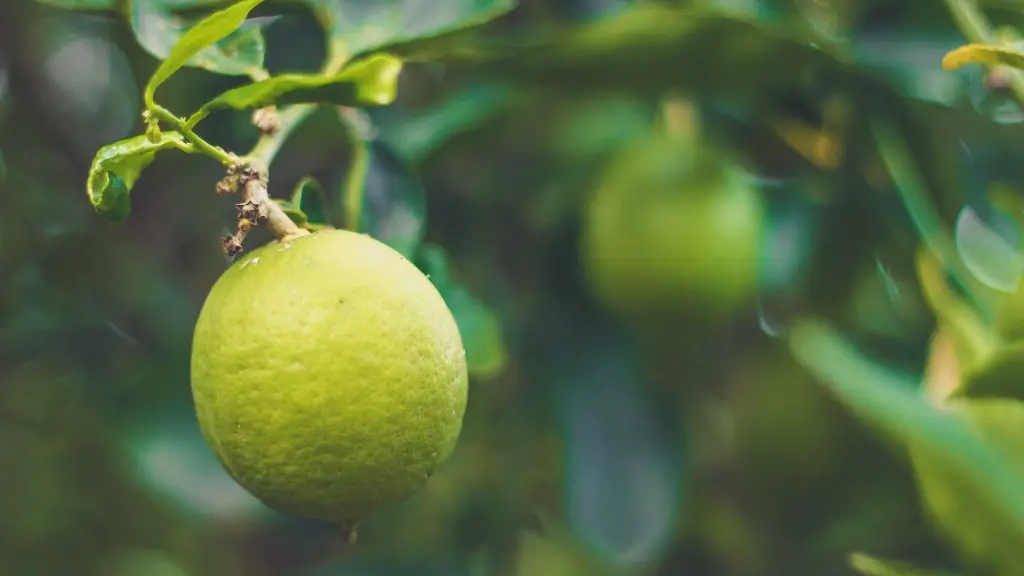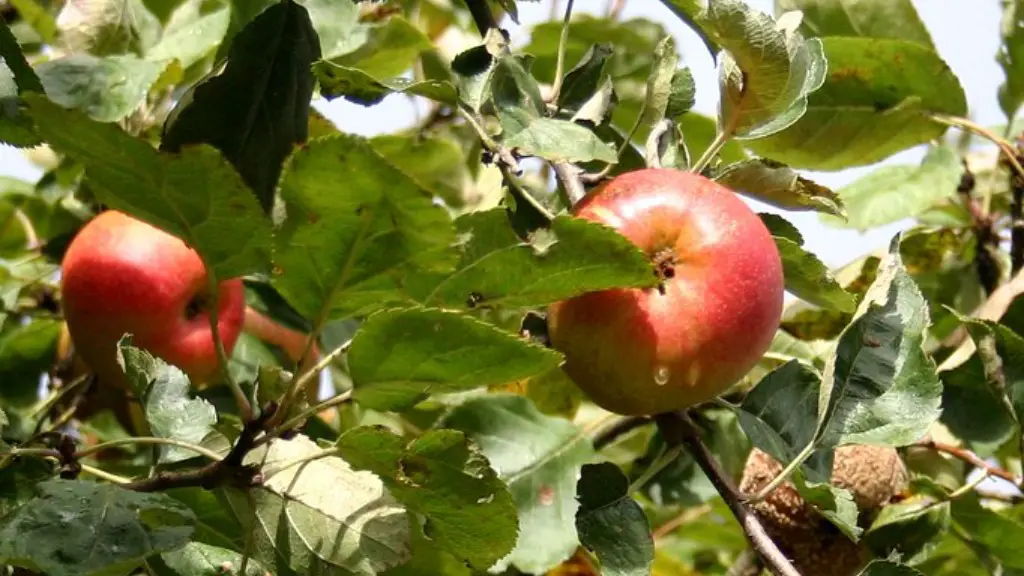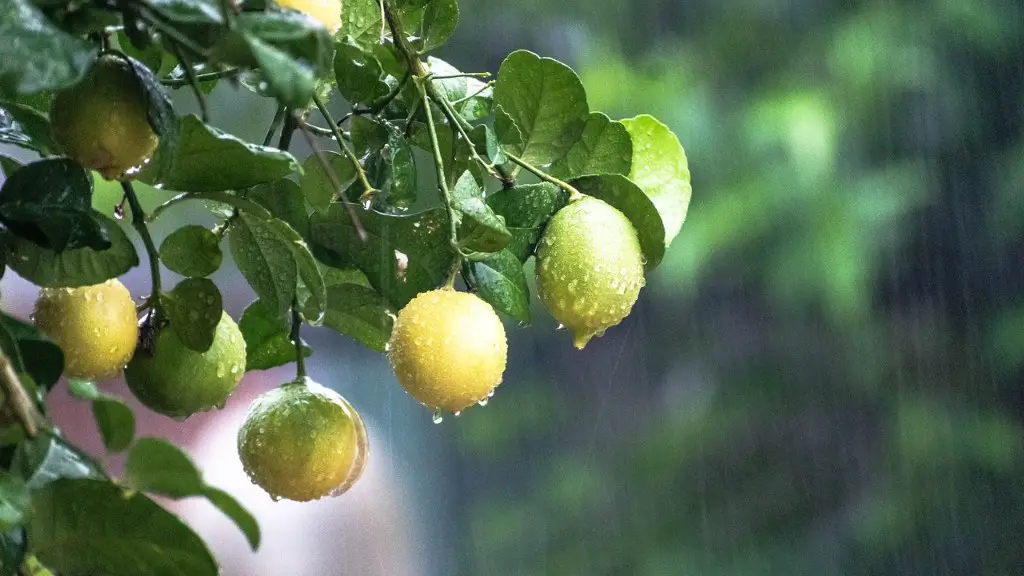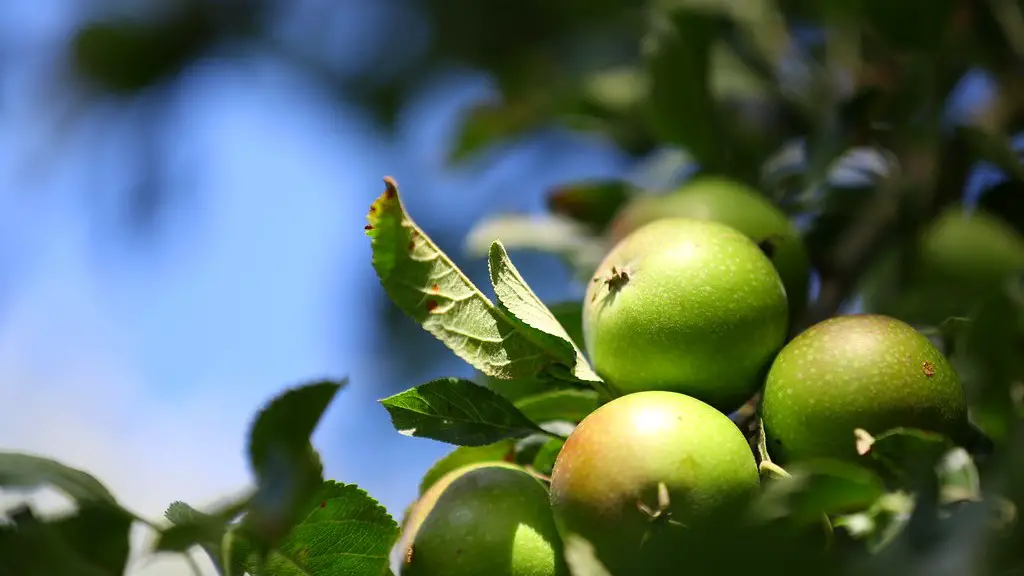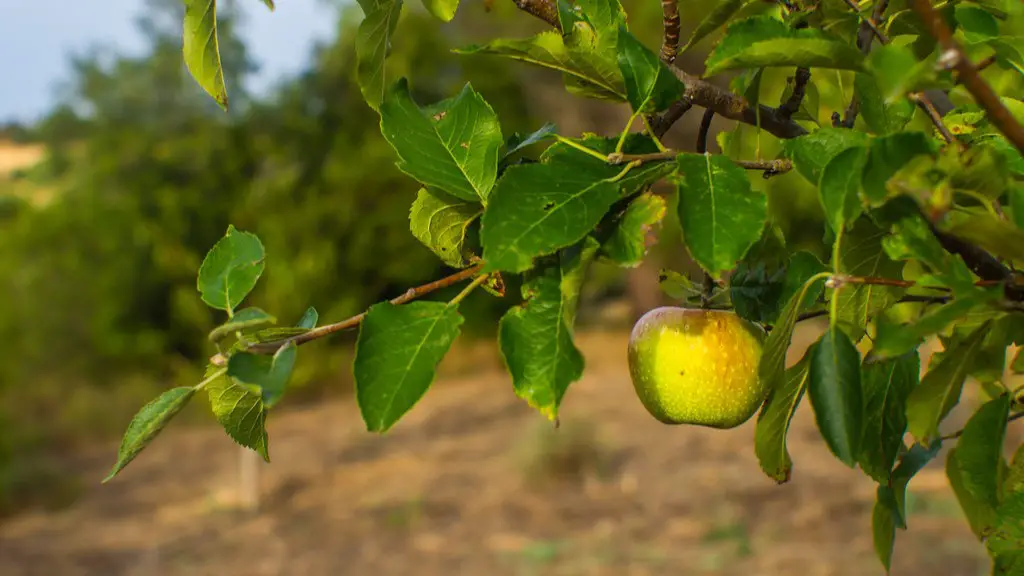It can be disheartening for gardeners and plant lovers alike when their lemon tree does not produce an anticipated amount of lemons. In this article, we will explore why a lemon tree may not be giving its owners the lemons they desire and how this problem can best be remedied.
Firstly, an insufficient amount of light can affect a lemon tree’s ability to produce the desired amount of lemons. If a garden or home fails to provide enough sunlight for the lemon tree, it will most likely not bear the desired amount of fruit. Therefore, to promote healthy and abundant lemon production, it is important to ensure that the tree is getting the right amount of light.
Additionally, lemon trees often require ample amounts of water. Too much or too little water can seriously impede a lemon tree’s ability to thrive and produce plentiful amounts of fruit. If a tree is not receiving the right amount of hydration, the signs of an inadequate water supply will usually be apparent in its leaves. They may be droopy and discolored, indicating a shortage of water.
Moreover, a lemon tree might not produce lemons if it has not received the proper amount of fertilizer. Fertilizer is critical for the health of a lemon tree and to encourage it to bear fruit. However, it is best to consult a professional botanist for advice on the best and most appropriate fertilizer for a particular tree.
Furthermore, erratically changing temperatures can also affect the productivity of a lemon tree. If temperatures fluctuate too drastically, it can cause the lemon tree to become stressed and decrease its ability to produce lemons. Therefore, it is important to provide the lemon tree with stable temperatures, avoiding too much variance.
Finally, in some cases, the lack of lemon production may be caused by the tree’s age. As trees mature and get older, their ability to produce fruits generally decreases. This is because a lemon tree’s blossoms often do not have enough energy to bear fruit. In this case, it may be necessary to replant the tree in a different location, ensuring the tree is not too old and thus able to bear plenty of fruit.
Too Little Light
A lemon tree may produce fewer lemons than expected if it is not exposed to an adequate amount of sunlight. During the day, a lemon tree should be exposed to at least six hours of full sunlight in order to ensure optimal production. If a tree is not receiving an adequate amount of light, then it is likely that it will produce fewer lemons than anticipated. To ensure ample lemon production, it is important to do an assessment of the amount of light your lemon tree is receiving and adjust accordingly, if needed.
In addition to sunlight, it is also important to consider the quality of the light the lemon tree is receiving. If thequality of the light is poor, i.e. coming from a window or a covered patio for example, then it is best to adjust the positioning of the lemon tree to ensure it is receiving the best quality of light possible.
Furthermore, providing extra light to a lemon tree in the form of artificial light can be an effective means of improving the production of lemons. If a garden or home does not provide a sufficient amount of natural light, then an artificial source may be used to ensure the lemon tree receives enough light to bear ample amount of fruit.
Finally, a lack of light causes a lemon tree to go into its dormant stage, thus affecting its ability to produce fruit. During its dormant phase, a lemon tree will cease to produce or bear fruit, and go into its resting stage. To prevent this from happening, it is important to provide the lemon tree with enough light to ensure it remains active and healthy and keeps producing lemons.
Inadequate Water Supply
Failing to provide a lemon tree with enough water can also impede its ability to produce lemons. A lemon tree typically requires at least 8-10 gallons of water per day during its peak season to remain productive. If this is not provided, then the lemon tree will most likely not produce the desired amount of fruit. Additionally, it is important to avoid over-watering the lemon tree as this can cause it to become bogged down, thus hindering its productive capabilities.
Not only does the quantity of water matter; its quality also plays an important role in promoting healthy lemon tree production. Utilizing filtered water for a lemon tree is one of the most effective ways to ensure the tree is receiving the essential minerals and nutrients it needs to thrive and produce an ample amount of lemons. Additionally, different types of lemon trees require different levels of filtration and hydration. It is therefore important to seek advice from a professional botanist to ensure that the lemon tree is receiving exactly what it needs.
Furthermore, it is also important to pay attention to the weather when watering a lemon tree. In climates that are particularly hot and dry, lemon trees may require more water to stay productive. On the other hand, if the climate is more temperate, the lemon tree can be watered slightly less. Doing this allows the tree to remain productive whilst also avoiding unnecessary water consumption.
Finally, it can also be beneficial to set a regular watering schedule. A lemon tree should be watered at least twice a day during its peak months to keep it healthy and producing lemons. However, it is important to adjust this schedule according to the climate and season to ensure the best results. Additionally, it is prudent to keep an eye on the soil to check for signs of water scarcity.
Insufficient Fertilizer
Providing a lemon tree with the appropriate amount of fertilizer can be essential to promoting healthy and abundant lemon production and growth. Fertilizer helps to provide essential nutrients and minerals to the tree, which it needs to stay healthy and productive. Additionally, regular and appropriate fertilization can also improve the soil quality, enhancing the root structure of the lemon tree and thus improving its ability to bear fruit.
Moreover, the type of fertilizer used can also be critically important in ensuring adequate production of lemons. Different lemon trees require different types of fertilizer to stay productive. For example, citrus fertilizer can be very beneficial for these sorts of trees as it contains a high level of nitrogen, phosphorus and potash which encourages lemon production. It is therefore important to consult a professional for advice about the best fertilizer for a particular tree and its growing environment.
In addition to this, it is also important to be aware of the scheduling of the fertilizer application. Fertilizing a lemon tree too frequently can cause it to produce fewer lemons than desired, whereas fertilizing it often enough can be beneficial for its production. It is, therefore, important to adjust the timing of the fertilizer applications and consult an expert for advice.
Finally, in some cases, a lack of fertilizer can be the reason for a lemon tree not bearing the desired amount of fruit. If the tree appears to be unhealthy and the soil is of poor quality, it is very likely that the tree is lacking adequate fertilizer and it is important for gardeners to adjust this accordingly. However, to ensure that the lemon tree receives the exact amount of fertilizer it needs, it is advised to seek guidance from a professional botanist.
Fluctuating Temperatures
In some cases, erratically changing temperatures can cause a lemon tree to produce fewer lemons than expected. When temperatures are too high, or too low, a lemon tree can become stressed and thus produce fewer lemons than desired. Additionally, when temperatures change too drastically and too fast, lemons that are ripening can fall off the tree prematurely before they have had the chance to reach their full maturity.
Therefore, it is important to ensure that a lemon tree is not exposed to extreme temperatures, particularly when the tree is starting to flower and bear fruit. In addition to this, it is important to provide the lemon tree with a consistent temperature so that it is not exposed to any drastic changes that may affect its productivity.
Moreover, providing shade to a lemon tree from direct sunlight can be beneficial in protecting it from too-high temperatures and promoting healthy lemon production. If a tree is situated in a particularly warm environment, it is advisable to cover its foliage with a light shade cloth as this can reduce the amount of heat it is exposed to.
Furthermore, it is also prudent to avoid pruning a lemon tree when temperatures are too low as this can lead to the death of the branches, thus hindering the production of lemons. If the weather is particularly cold, it is best to wait until conditions improve before carrying out any pruning. Additionally, pruning should never be done during the periods when a tree is flowering or fruiting as this can seriously affect its ability to produce the desired amount of lemons.
Finally, in calmer climates, a lemon tree prefers temperatures that are around 70-80°F during the day and above 45-50°F at night. When temperatures dip below these levels, even for a short time, it can serioulsy affect the tree’s ability to produce lemons. Therefore, it is important to pay close attention to temperatures when attempting to maximize lemon tree productivity.
Growing Old
In some cases, a lemon tree may not bear the desired amount of fruit due to its age. As a lemon tree matures, its ability to produce lemons usually starts to decrease. This is because older trees’ blossoms often do not have enough energy to bear fruits. Therefore, if a lemon tree appears to be too old and its production has decreased, then it may be necessary to replant the tree in a different location.
On top of this, it is important to properly care for a lemon tree to ensure that it does not become too old. Lemon trees should be pruned regularly, using the appropriate Garden shears, and the soil should be kept fertile with the help of fertilizer. Additionally, older trees should be given more water as this can help them remain productive for longer. Furthermore, it may be necessary to attend to the lemon tree more often than usual as it matures.
Moreover, replanting a lemon tree can also be beneficial in promoting good lemon production. Before replanting, it is important to check the tree’s roots and prune off any that appear withered. Additionally, when the replanting is completed, it is best to shade the tree for a few days to help it adjust to the new environment. It is also recommended to ensure that the tree is receiving enough sunlight and water, as these two factors are essential for promoting lemon productivity.
Finally, tapping into natural resources can also help to create a better environment for a lemon tree to grow in. For example, utilizing mulch can be very beneficial in improving the nutritional and moisture content of the soil, thus creating an ideal setting for a lemon tree to produce abundant amounts of lemons.
